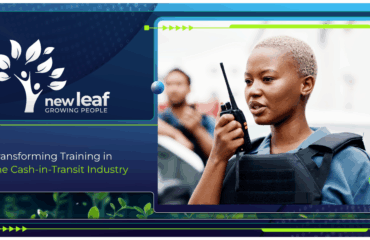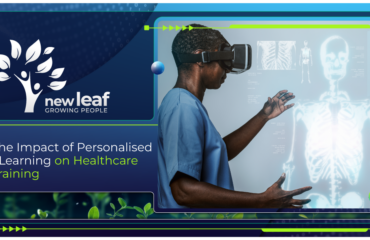
Training and education in healthcare are undergoing a transformative shift. The advent of Artificial Intelligence (AI), advanced data analytics, and adaptive learning management platforms is allowing healthcare companies to deliver these essential priorities via eLearning programs at scale, including to remote and underserved areas.
While medical expertise remains at the core of healthcare, new factors shaping its trajectory are data security and soft skills training for healthcare workers, regulatory awareness, and the adoption of new technologies. These factors not only determine the success of healthcare organisations but also define the career growth of healthcare professionals.
Let’s look at why the trending training priorities in healthcare are so important as part of your learning and development strategy, and explore real-world examples that demonstrate their impact.
Enhanced Compliance Training
Healthcare is one of the most heavily regulated industries, which comes as no surprise; strict standards ensure patient safety and ethical practices. Non-compliance can result in hefty fines and reputational damage. Healthcare compliance training ensures that healthcare professionals understand and adhere to these critical guidelines.
When healthcare personnel need to undergo mandatory and time-sensitive compliance training, HR or L&D managers can assign courses to employees and set the timeframes within which they must complete training. This can be done during onboarding or company-wide when new regulations are published.
An example of where healthcare compliance training has been executed successfully is at Unichem Laboratories Ltd., one of India’s largest pharmaceutical companies. It had to ensure that all 3,200 employees complied with national and international pharmaceutical standards and regulations. They used a content authoring tool to convert training content into SCORM — an LMS-friendly format that cannot be downloaded or edited once it is put online. This was important because of the confidential nature of the content.
The company converted over 900 standard operating procedures into digital courses, which allowed it to train all employees quickly and cost-effectively.
Technology Integration
Digitalisation, especially the introduction of AI, is revolutionising healthcare by enabling more efficient processes, reducing errors in diagnosis, creating personalised treatment plans, and providing improved accessibility to healthcare information. From electronic health records (EHRs) to telemedicine, technology is enhancing patient outcomes and reducing costs.
However, successful digital transformation and technology integration require training and adaptation, both of which can be facilitated by state-of-the-art learning management software that provides personalised healthcare training.
All leading learning management platforms now use Generative AI, which can enhance the training and upskilling of medical staff by providing realistic and immersive learning experiences. It also enables gamified eLearning for healthcare training through virtual patient simulations, medical quiz apps, patient diagnosis games, gamified anatomy learning through artificial reality, and patient case challenges — to name a few.
A standout example of AI’s increased adoption in healthcare training is India’s Apollo Hospitals, which adopted AI-powered tools for early cancer detection. Staff underwent rigorous training on how to interpret AI results accurately, leading to earlier diagnoses and better survival rates.
Another example of how technology can assist in medical training is when Dutch company Bohn Stafleu van Loghum used the aNewSpring learning experience platform (LXP) to create an accessible learning intervention to teach nurses medical mathematics. Through instructional videos, they’re taught, for example, how to accurately determine how much oxygen a patient needs or what an IV’s drip rate should be.
Soft Skills Training for Healthcare Workers
Empathy, communication, and patient interaction skills are essential soft skills healthcare professionals need to provide high-quality, compassionate care.
Empathy is the cornerstone of building trust, and cultivating this soft skill can transform healthcare professionals’ careers and enable them to connect meaningfully with patients and colleagues. Research shows that patients who feel understood are more likely to adhere to treatment plans.
Through role-playing scenarios delivered via the learning management system and communication workshops offered in a blended learning environment, learners can hone their communication and patient interaction skills in a safe-to-fail environment and prepare for genuine conversations with patients.
One remarkable example of soft skills training for healthcare workers is the Schwartz Rounds initiative, which provides a platform to discuss emotional and social challenges in the working environment. Introduced in several UK hospitals, these rounds have reduced burnout and improved staff morale, leading to better patient care.
The Point of Care Foundation, an independent charity working to improve patients’ experience of care and increase support for healthcare staff, sought to fulfil demands for an easier and faster way to access training. They implemented the blended learning model they use now — combining online and in-person training to deliver Schwartz Round facilitator training.
Data Security in Healthcare Training
In an era of data breaches and cyberattacks, robust security measures are essential for protecting sensitive patient information. The NHS, for example, faced a major ransomware attack in 2017 that disrupted services across the UK, costing millions and endangering lives. This incident underscored the importance of data security in healthcare training as a priority for the industry. Not only does this mitigate risks and avoid penalties, but it also improves patient trust by demonstrating a commitment to privacy.
A great example is the implementation of the General Data Protection Regulation (GDPR) in Europe, which required hospitals to overhaul their data-handling practices. Offered via learning management systems such as TalentLMS, students learn how the regulation protects company, personal, and individual rights through a mix of bite-sized videos, long- and short-form articles, audio, social interaction, and practical activities.
Another example is the Cleveland Clinic in the US, which implemented extensive training on recognising phishing scams. The upskilling resulted in a 50% reduction in successful phishing attempts, protecting the hospital group against data breaches and hacking attempts.
New Leaf Technologies Is Ready To Roll Out Your Healthcare Training
Focusing on these trending priorities in healthcare training can drive remarkable outcomes for both organisations and individuals in the healthcare sector. Hospitals that embrace these pillars create safer environments, build stronger patient relationships, and ensure compliance, all while leveraging technology to stay ahead. Whether you work in the medical insurance, pharmaceutical, or general healthcare industry, eLearning is designed for all ages and levels of experience. If you need to train a diverse medical or pharmaceutical workforce at scale, contact New Leaf Technologies for a customised solution and let us help you upskill your staff so they can better serve their communities.




